Is your AC far from the nearest outlet? You might want to use an extension cord, but you don't know if that would be safe. Worry no more! We've researched what you need to know.
Using an extension cord depends on what type of AC unit you have. Usually, the extension cord should be at least 120 volts, 15 amps, and 10 feet long. See below for more factors you need to consider when choosing an extension cord for an AC:
- Wire size
- Power capacity
- Connector
In this article, we'll discuss the characteristics of an extension cord your AC unit needs. We'll touch on some related matters, like electrical safety measures when using the AC. You have a lot more to learn from us. So just keep reading!
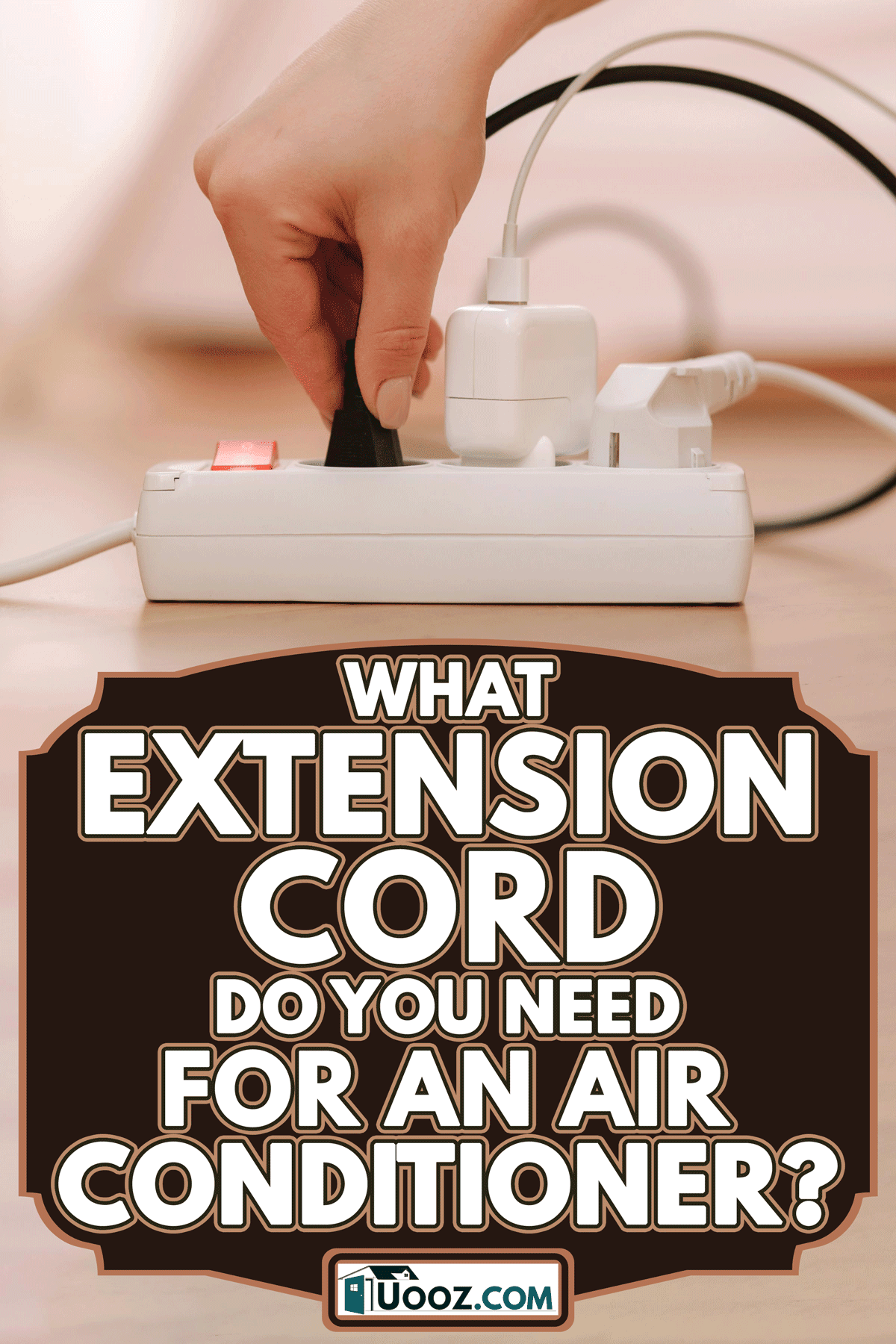
Choosing The Best Extension Cord For An AC
You need to know what factors matter when choosing an extension cord for your AC unit. It's important to be aware of different extension cord qualities for your safety. Refer to the list below for more details.
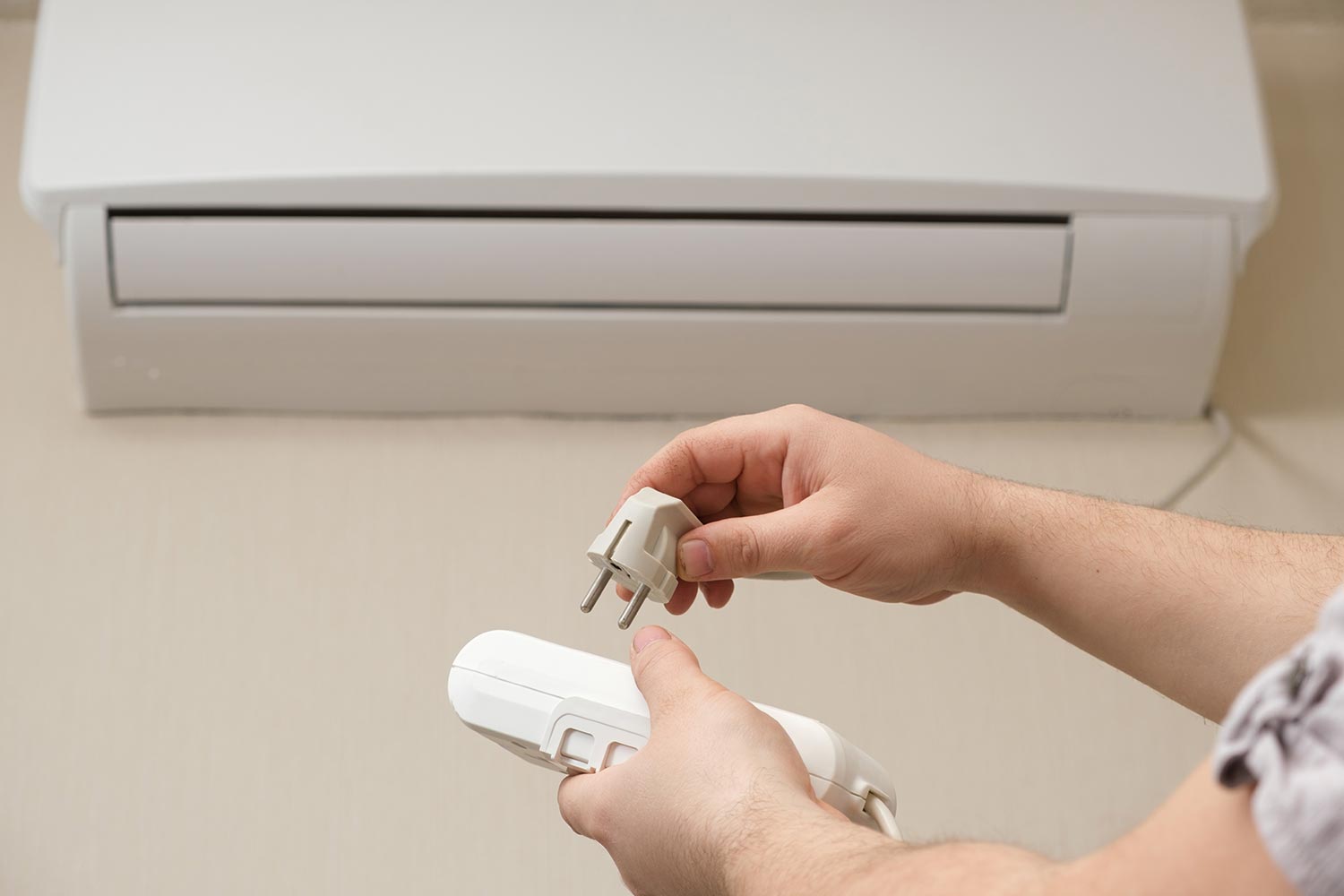
1. Wire Size
Wire size has to match the amperage level of electricity. Most AC units require around 15–18 AWG (American Wire Gauge) to ensure the electricity flows properly. An incorrect wire size can cause serious problems, like electrical sparks.
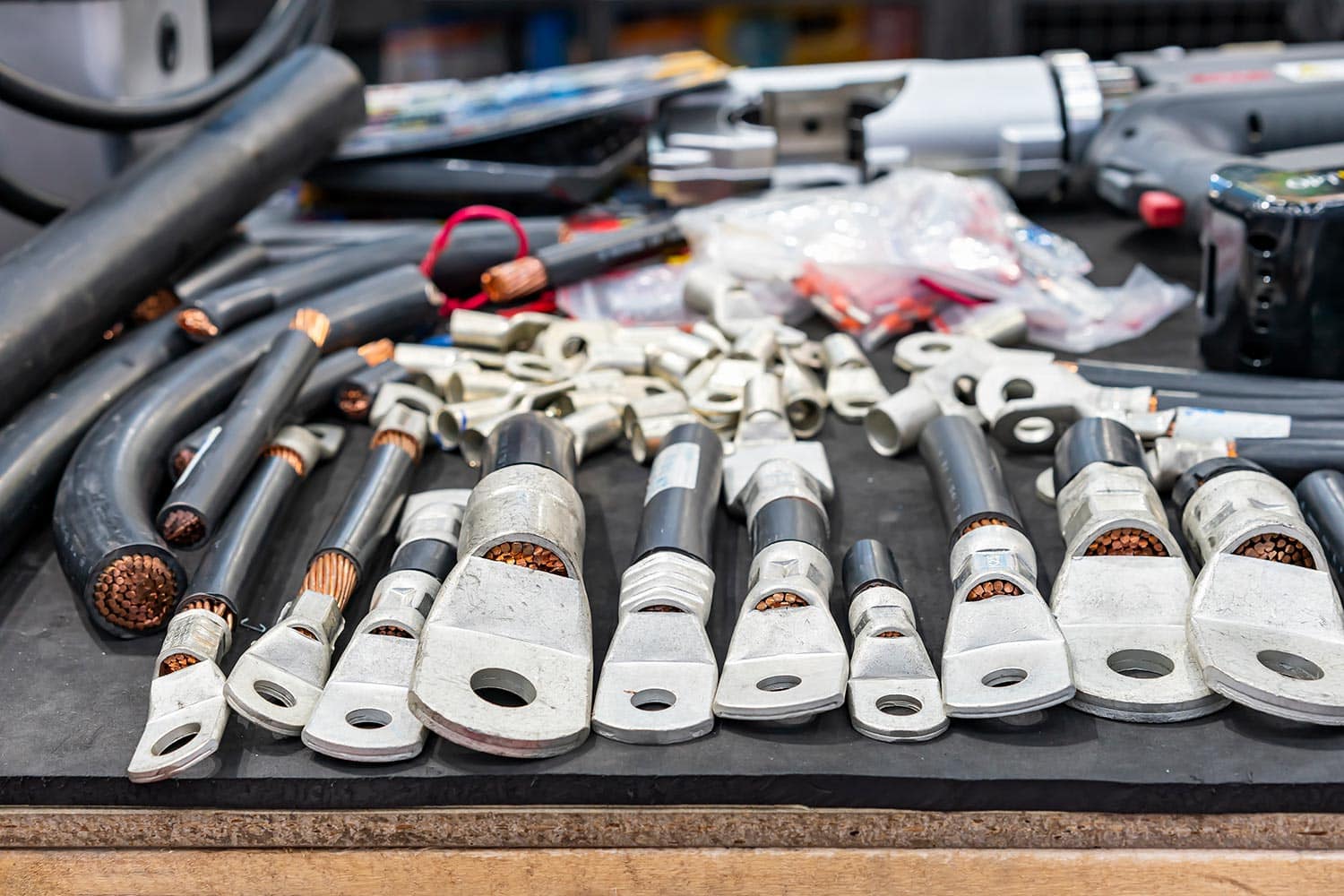
Also, consider the wire length. It is a significant factor in electrical resistance, which is the distribution of electrical charges through wire channels. Depending on the air conditioner, the wire length may be between 10 to 30 feet.
Knowing about resistance helps make electrical appliances safe to use. The longer the wire, the better its resistance.
However, wire size depends on the AC unit manufacturer. Refer to the AC unit's description to choose a suitable wire size.
You can measure the wire's diameter with a wire gauge.
See this wire gauge on Amazon.
2. Capacity for Power
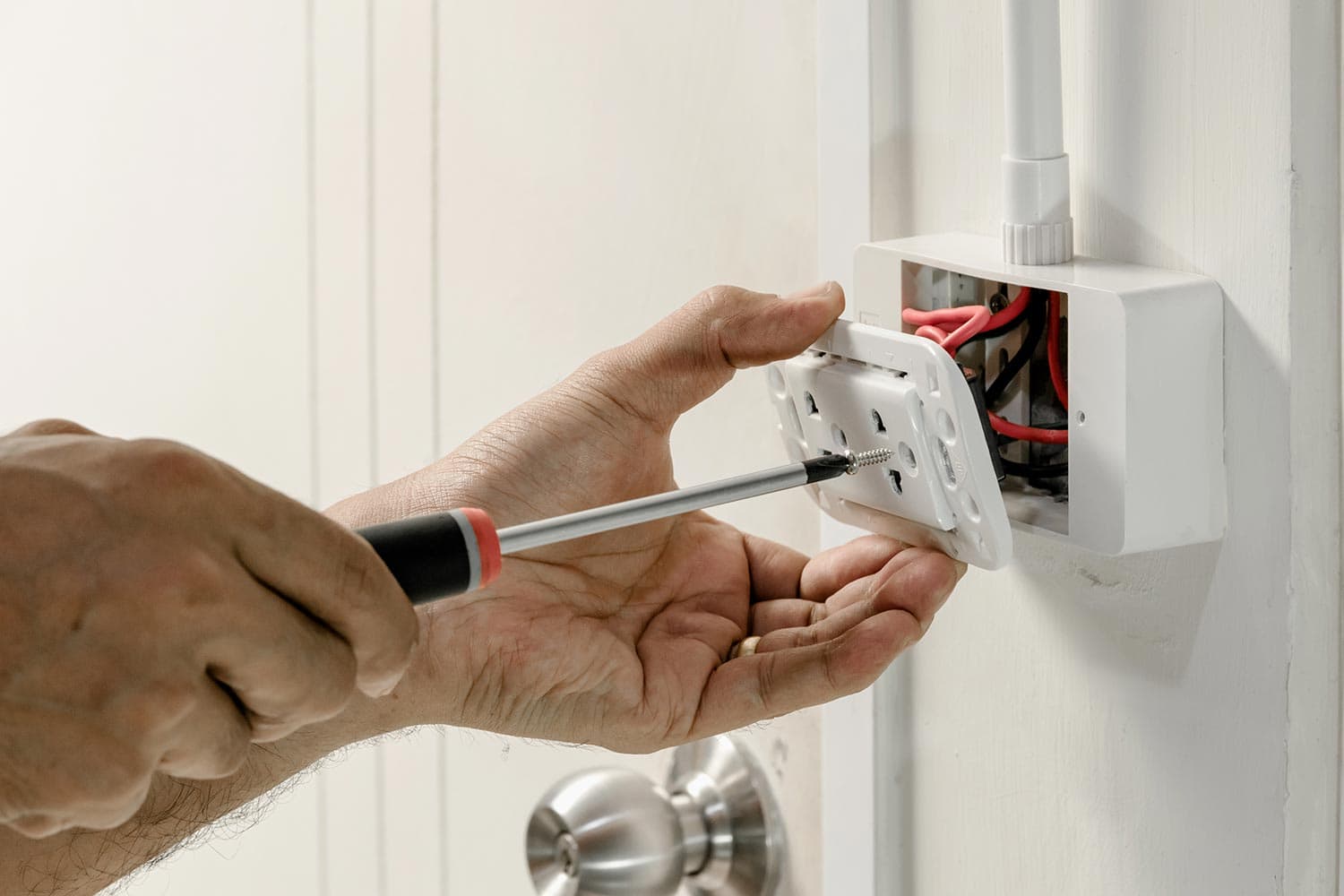
There are three things to remember about electrical power, namely voltage, wattage, and amperage. These three components are present in electrical wires, and that's why we need to check the power capacity of an AC unit.
Voltage refers to the flow of electricity, while amperage measures the strength of an electric current. Thus, wattage measures refer to the overall power of electricity.
Find a breakdown of the power capacity on your AC unit, and match it with the capacity of the extension cord. Otherwise, do not risk an unmatched power capacity.
3. Connector
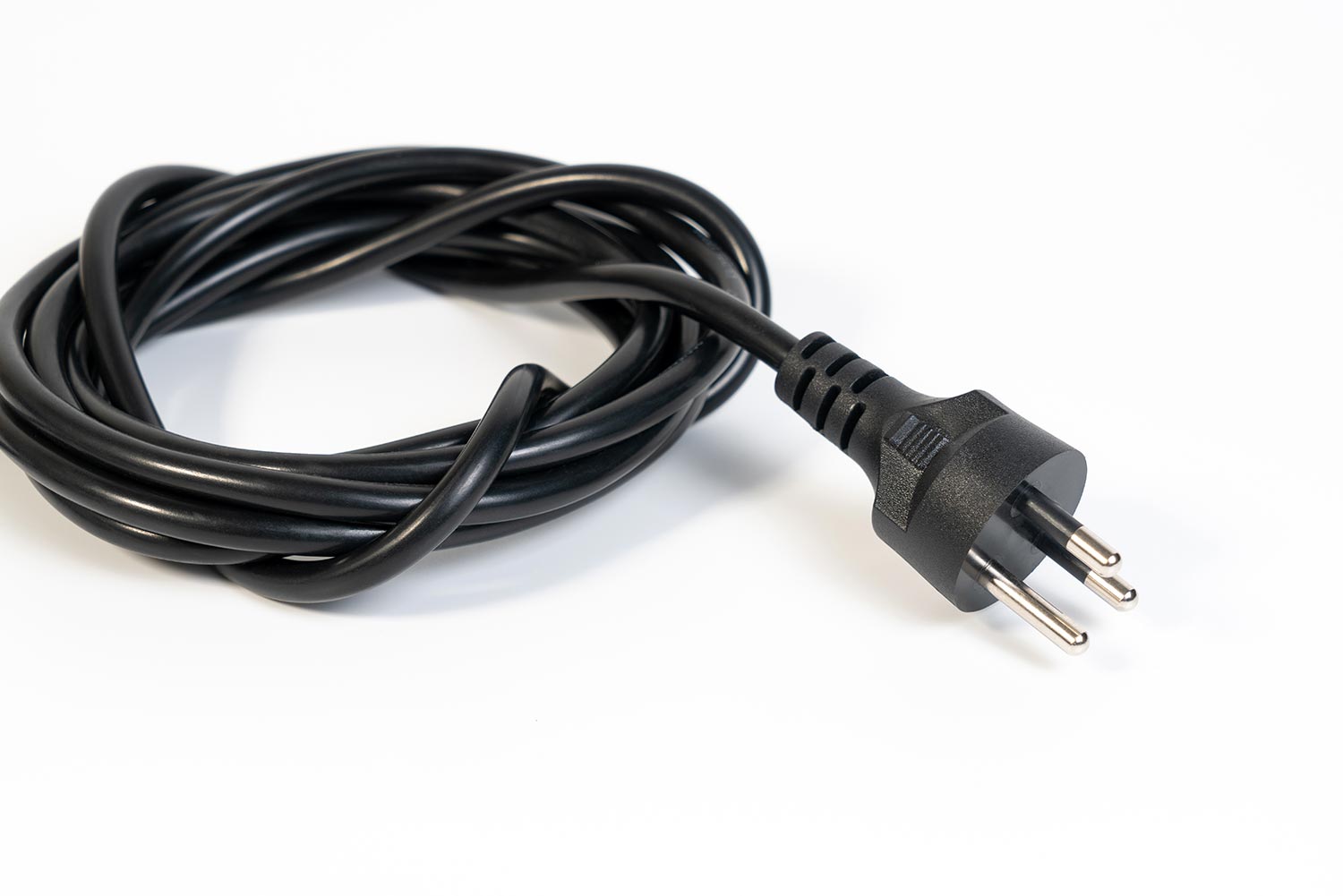
Usually, AC units have a 3-prong connector to balance the flow of electricity. For comparison, 2-prong connectors are usually low voltage power. The extra prong is there to prevent electric overflow since the electricity consumption is continuous during the use of an air conditioner.
It's also critical that the connectors are compatible with the outlet to avoid a fire. So, check the plug and connector. Don't force plug the AC unit if it doesn't fit the extension cord.
Why Is A Correct Extension Cord Important?
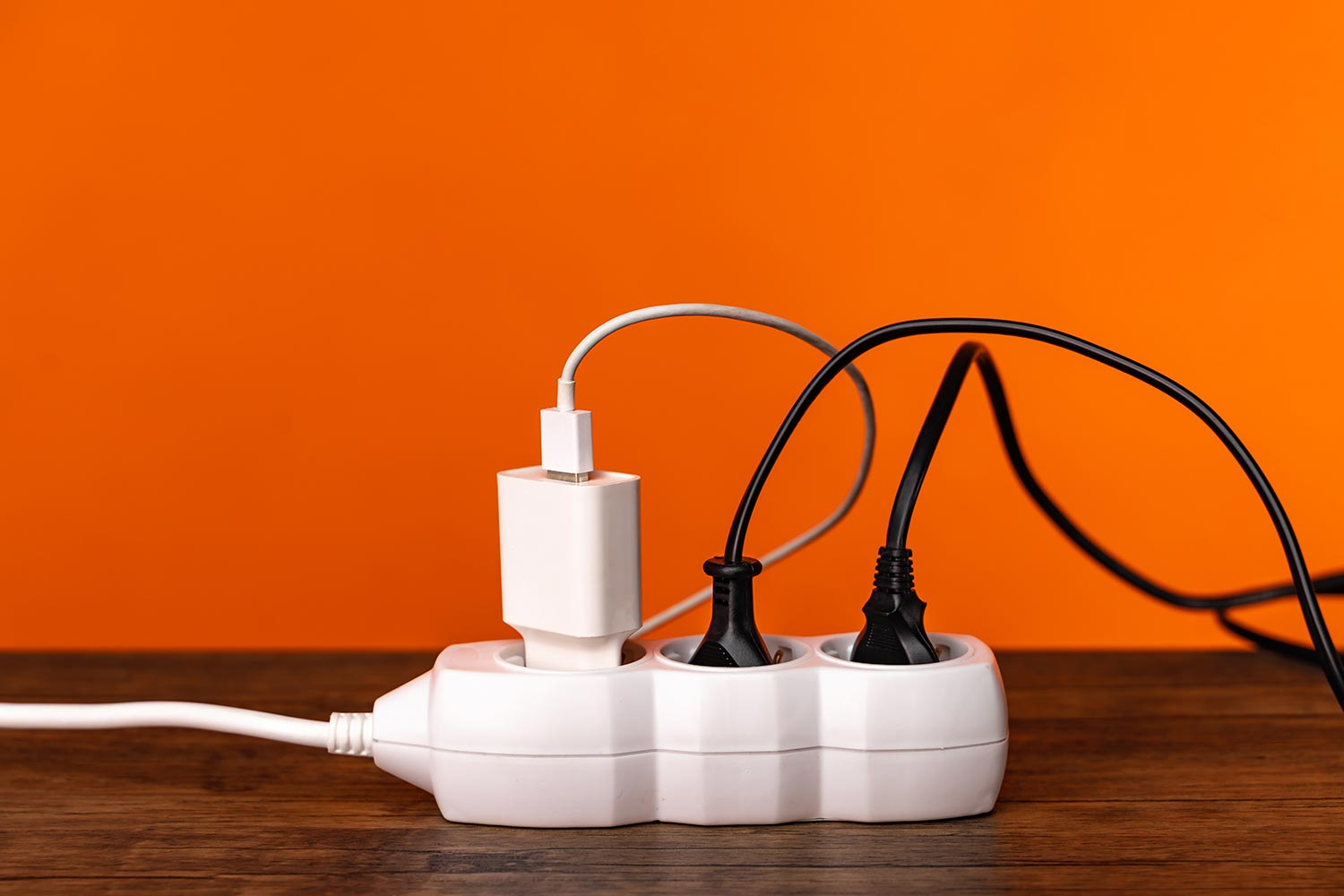
An extension cord converts electrical power into lower, more efficient charges. If you plug the AC unit directly into the main source, there might be an overcharge of electricity. Too much power can easily damage an air conditioner's motors and parts.
That is why, in order to maintain electrical safety, it is critical to select the proper extension cord. Any inappropriate measure of electrical power and wire size can lead to trouble like a circuit shortage.
A circuit shortage happens when the wires don't have the capacity to transmit the volume of voltage passing through them. The result is burning wires or an electric shock. A power shortage is risky and can quickly destroy the AC motor.
Does Your AC Need A Circuit Breaker?
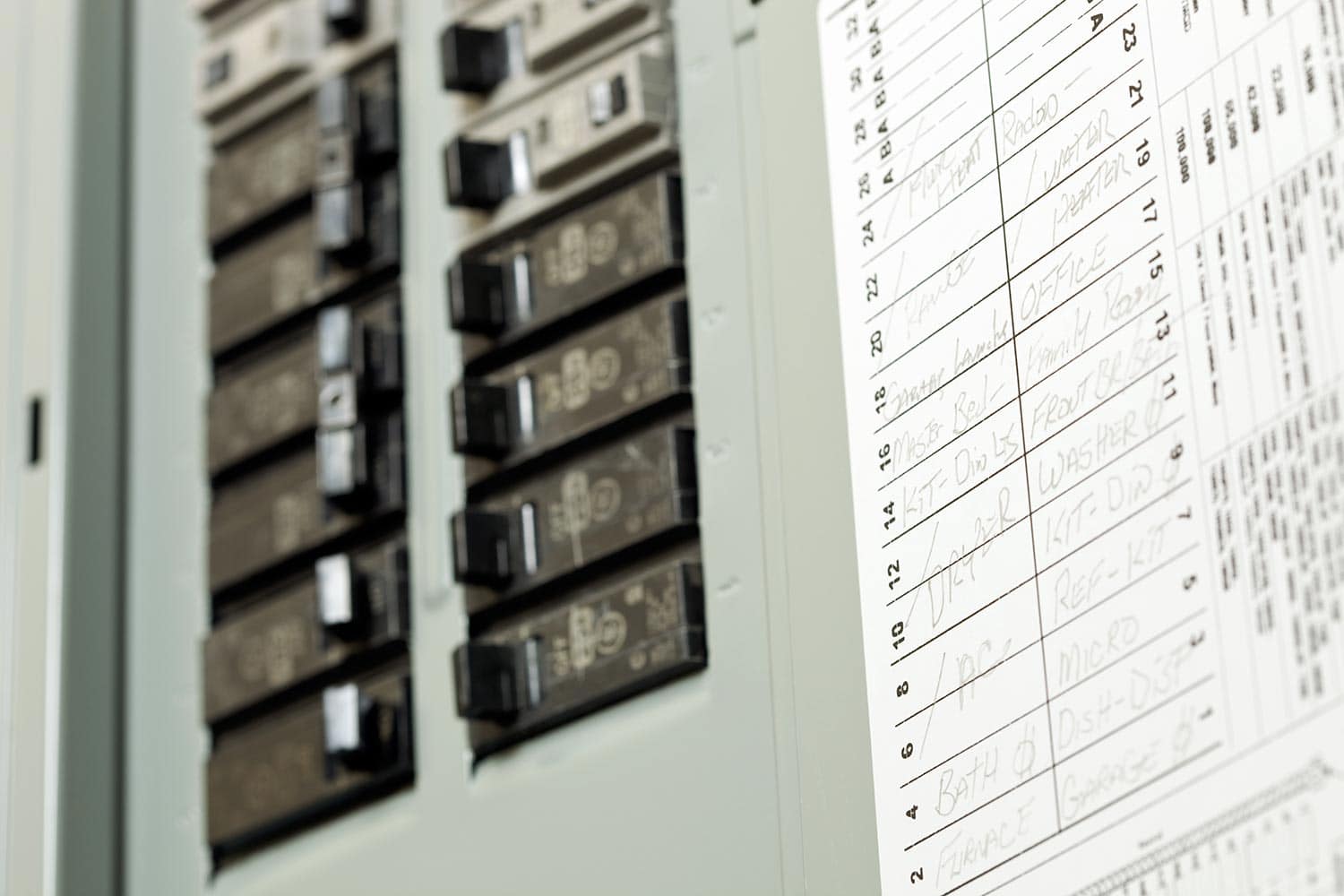
A circuit breaker serves as a defense against a circuit shortage. It is a switch to maintain the transmission of electrical power within a normal range depending on the voltage capacity of the AC. Also, it prevents circuit overflow.
Some AC manufacturers do not include a circuit breaker in their package. So, you need to familiarize yourself with how to choose the right circuit breaker.
Below are things to look for in a circuit breaker for AC:
Minimum Circuit Ampacity
Cicuit ampacity is the measurement of the minimum ampere a circuit breaker can handle throughout an AC's continuous use. You can find the ampacity level at the back of the circuit breaker, then match it with the label chart on your AC unit.
Maximum Fuse
You should also look at the maximum fuse a breaker can hold. It means that you should not connect the breaker at a higher amount than stated in the maximum fuse section. Find the maximum fuse compatibility on the AC unit's label.
We recommend you let electricians install the circuit breaker to ensure safety. A wrong placement of wires may cause risk problems like a fire.
Can You Use An Extension Cord Permanently?
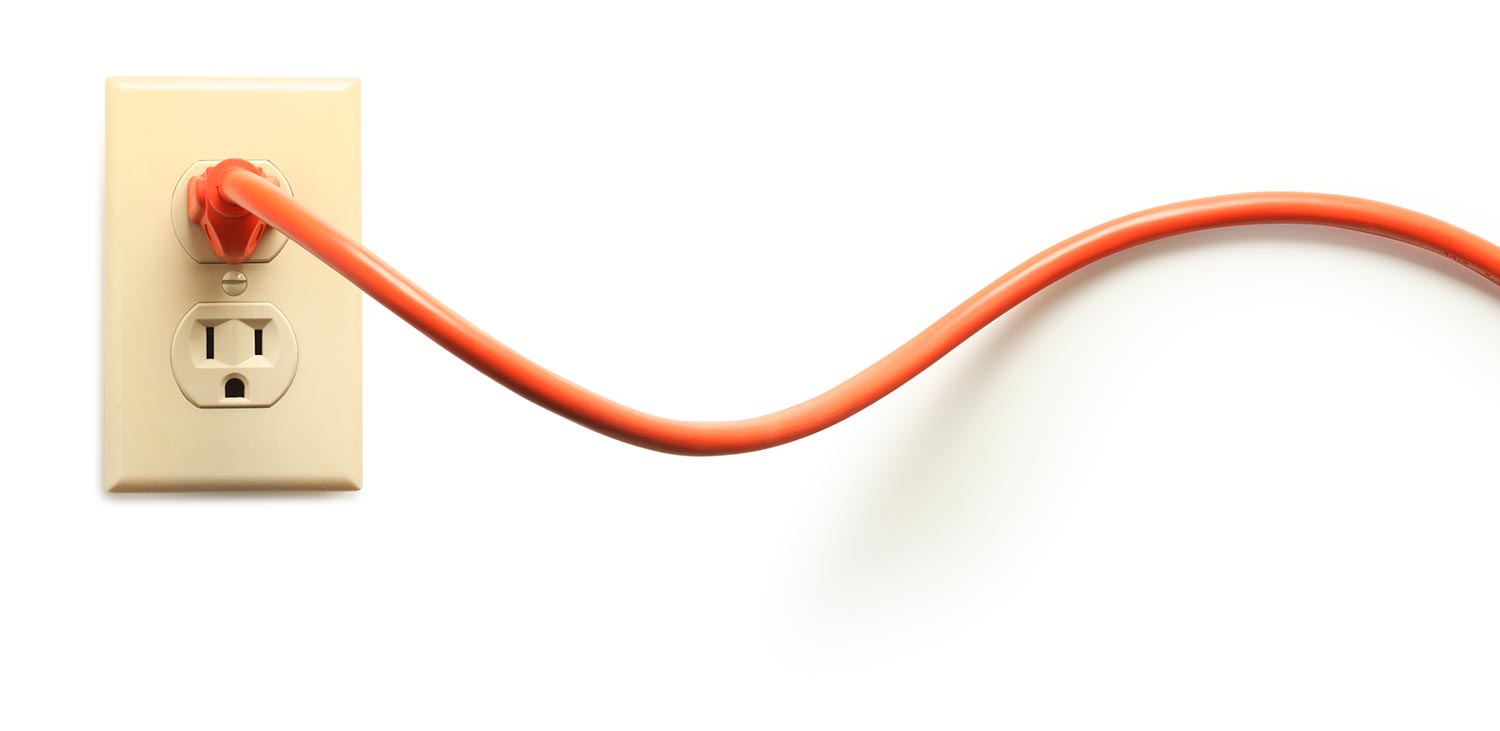
You shouldn't use an extension cord as a permanent wire. Research claims that permanently used extension cords are dangerous. You should use an extension cord for your AC for a maximum of 90 days.
It's important to reduce the use of an extension cord over long periods. Consider consulting an expert to rearrange your house's wiring for optimal placement of power sockets.
Where Should The Extension Cord Be?
Place an extension cord in a place where it is difficult for children or pets to reach it. Mounting it on a wall is an option, but hiding it behind a wall is not.
However, don't hide the extension cord and keep it in use for too long. We previously stated, it is unsuitable as permanent wiring.
Also, keep it away from wet places to avoid electric shock.
Can You Plug An Extension Cord Into Another One?
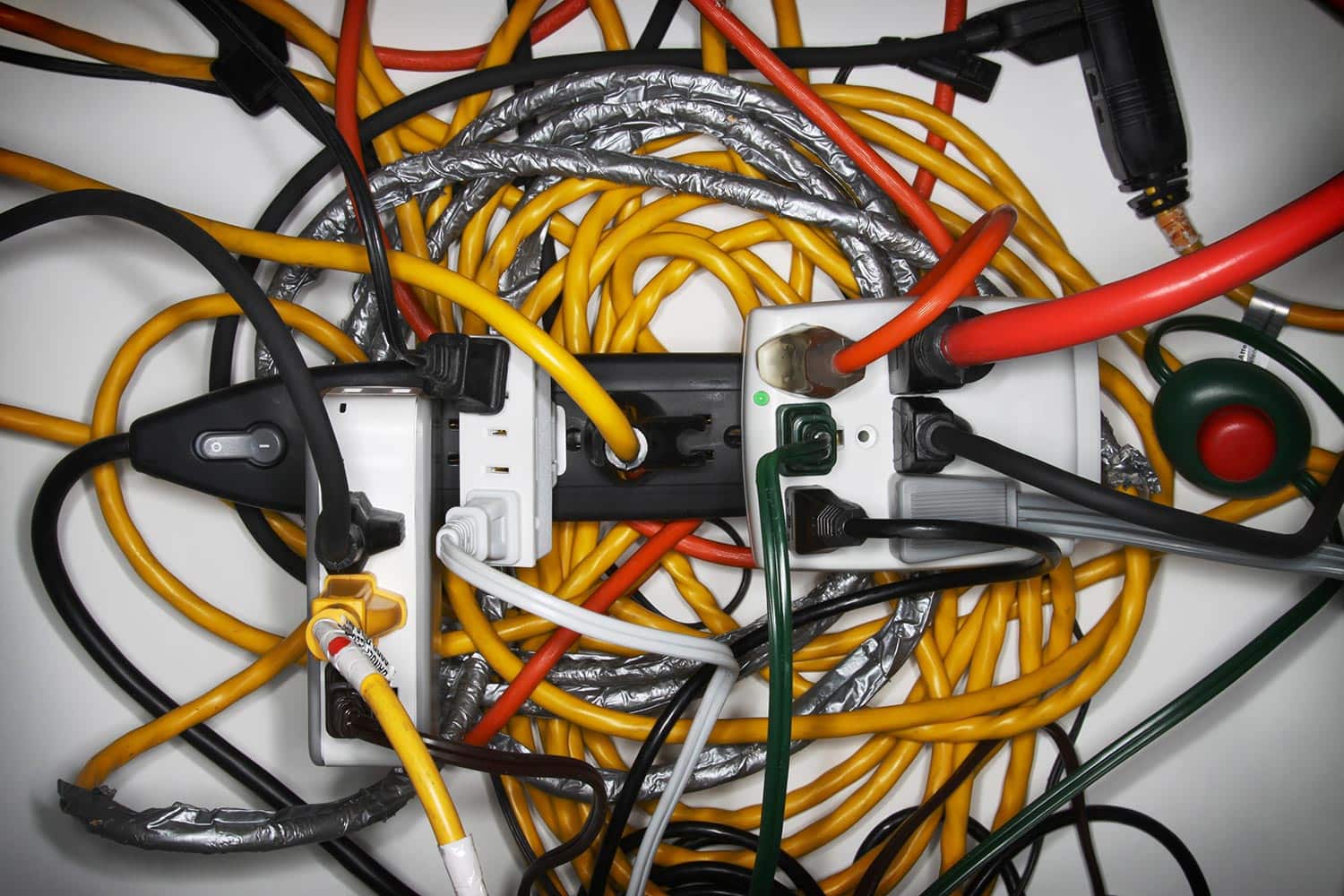
Do not plug in another extension cord into another one. If the AC is too far from a main outlet, find a longer wire instead of overlapping extension cords.
Doing so will consume more electricity, which leads to a higher electric bill. As long as the extension cord is connected to the main power, it still consumes electricity. It's wise to unplug the extension cord when not in use.
How Many Appliances Should You Plug Into An Extension Cord?
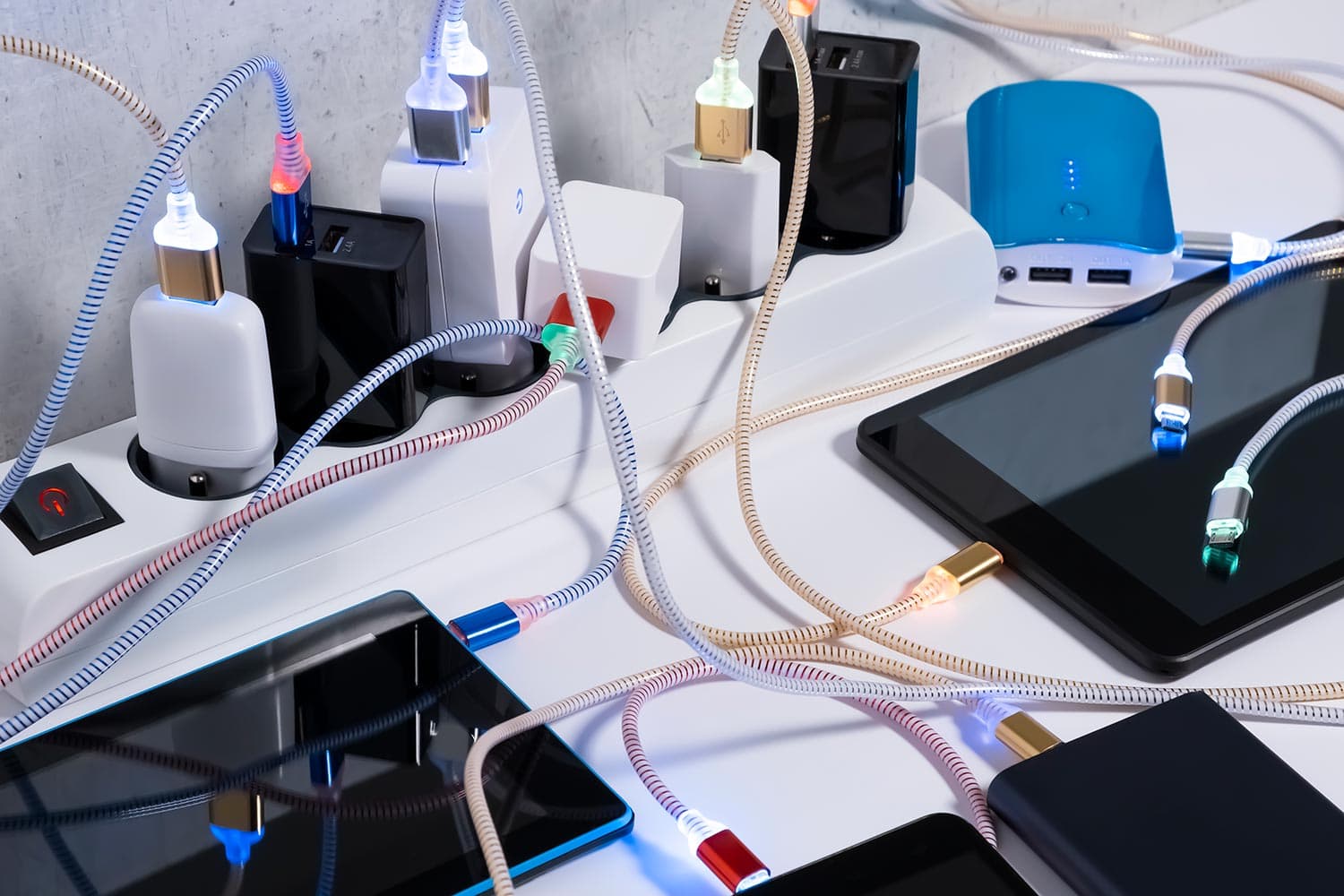
It's safe to plug a maximum of two appliances into an extension cord. But for the AC unit, use a single socket and do not plug anything else into the extension cord. This is to maintain safer power distribution and electrical compatibility.
Multiple plugs in an extension cord drain more electrical energy. Avoid this by designating an extension cord to a single appliance.
How To Protect Extension Cords From Tearing?
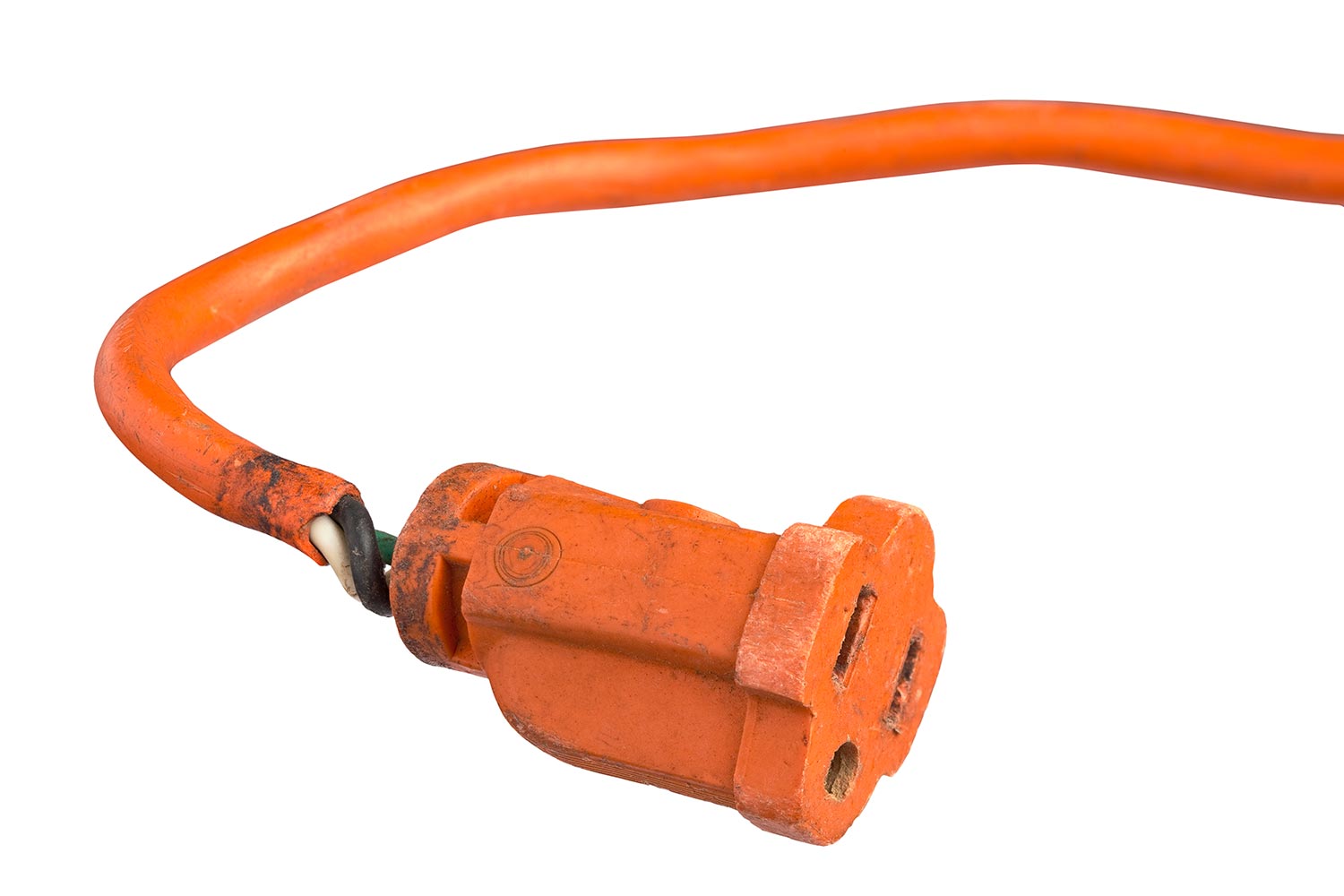
Over time, the wire on an extension cord can tear naturally. Be careful where you place an extension cord and avoid hiding it behind a wall. Use methods to protect cords and unplug it when not in use.
You may cover it with a detachable plastic or rubber strip. This is best if you have pets that may scratch the wires while it is in use. The covering strip adds a layer of protection against external damage.
See this cord protector strip on Amazon.
You may also use electrical tape to cover a torn part of the extension cord. However, electrical tape should be temporary. Electrical tape can help bridge the copper wire to continue transmitting power. But don't use it as a permanent solution.
See this electrical tape on Amazon.
How Long Does An Extension Cord Last?
Extension cords last around 4 to 6 years or longer, depending on how frequently you use it. It's better to monitor the use of an extension cord to avoid its overuse. Remember to unplug the AC unit when not in use.
How To Wrap An Extension Cord?
We often see people wrap extension cords in zigzag or circular shapes. Know how to wrap an extension cord correctly. Too much bending can constrict the copper wire and trigger an electric shock.
Find the safest way to wrap an extension cord:
- Bend the extension cord into a circular shape with a diameter of 7 to 8 inches. If you want a zigzag form, bend the wire at the length of your forearm.
- Use a zip lock to prevent the wire from spreading.
- Cover the socket with an electrical wire to prevent moisture from entering.
- Keep the extension cord in a cool, dry place.
Conclusion
We've learned so much about what to look for when choosing an extension cord for the AC. You should check the size, power capacity, and connectors.
We also discussed several safety reminders when plugging the AC into a power source and why we use a circuit breaker. Also, don't forget to ensure the extension cord is compatible with the AC and any other appliances.
Excited to learn more? Visit these articles:



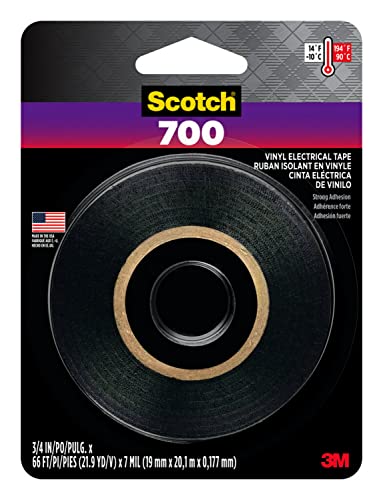
I have an air conditioner 12000btu. Can I use an extension cord that’s marked 13A,125V, 1625W or do I need to buy one that’s 14A and 1850W